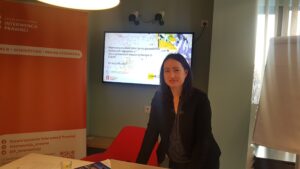MEETING
I-CLAIM Stakeholders’ Meeting (Poland)
Tuesday, 5 December – Closed-door event
What are irregular migrations? Why is this a more accurate and appropriate term than “illegal” migration? Why is it so difficult to clearly define them? How many and what shades of irregularities can be distinguished? Are refugees and migrants from Eastern European countries treated differently than people migrating from Asian and African countries?
In a narrow and strictly legal sense, irregular migration occurs when a person does not have a document entitling him to stay in the territory of the Republic of Poland. The project aims to define this concept. Irregular migration is a central issue in the Global Compact for Safe, Orderly and Regular Migration and impacts several of the 23 goals listed in the agreement. However, there remains an unresolved tension that goes directly to the heart of the definition of irregular migration: it is constructed as a global phenomenon, although in fact it is still defined only on the basis of the criteria contained in the national immigration and asylum laws of individual countries.
This meeting took the form of an expert discussion moderated by prof. Aleksandra Grzymała-Kazłowska (Faculty of Sociology, Migration Research Center, University of Warsaw). It was attended by representatives of institutions – ministries, think-tanks and non-governmental organizations working for refugees and migrants in Poland (including those created by people with migration experience).
The expert discussion was conducted in order to collect information for the report being prepared summarizing the changes in irregular migration in Poland over the last 20 years. Similar research is being carried out simultaneously in Great Britain, the Netherlands, Finland, Italy and Germany.
This will be a closed meeting where Chatham House rules will apply.
